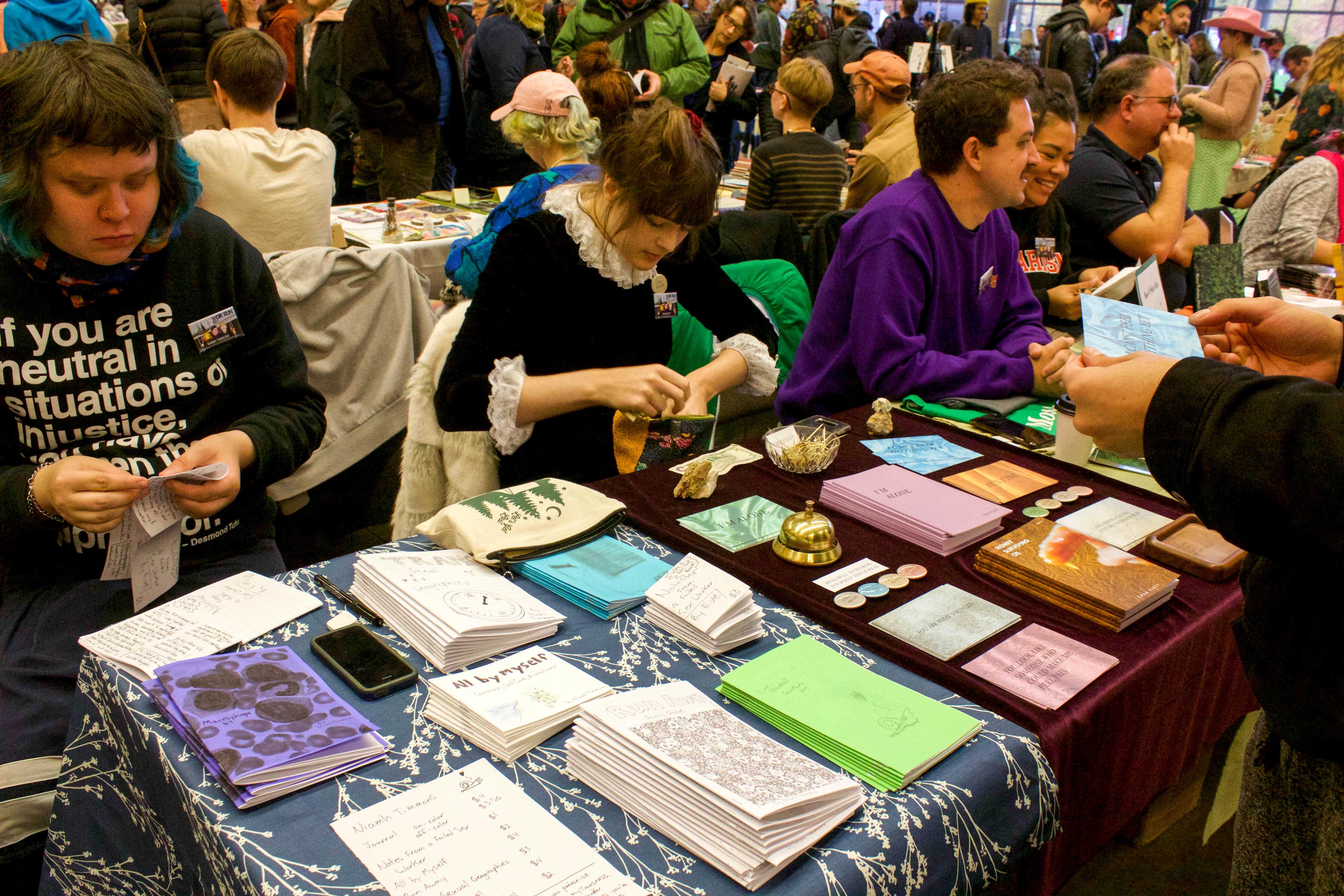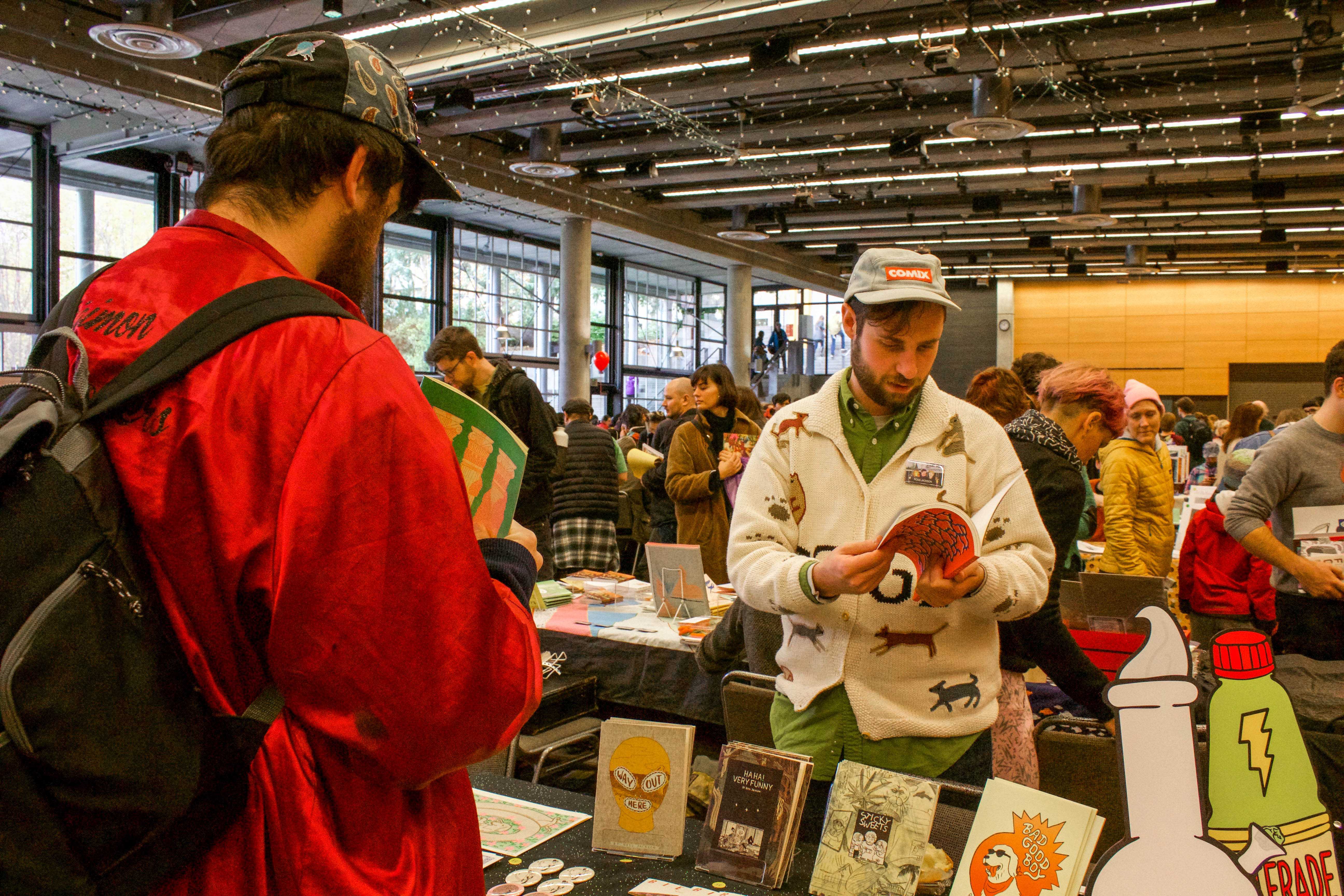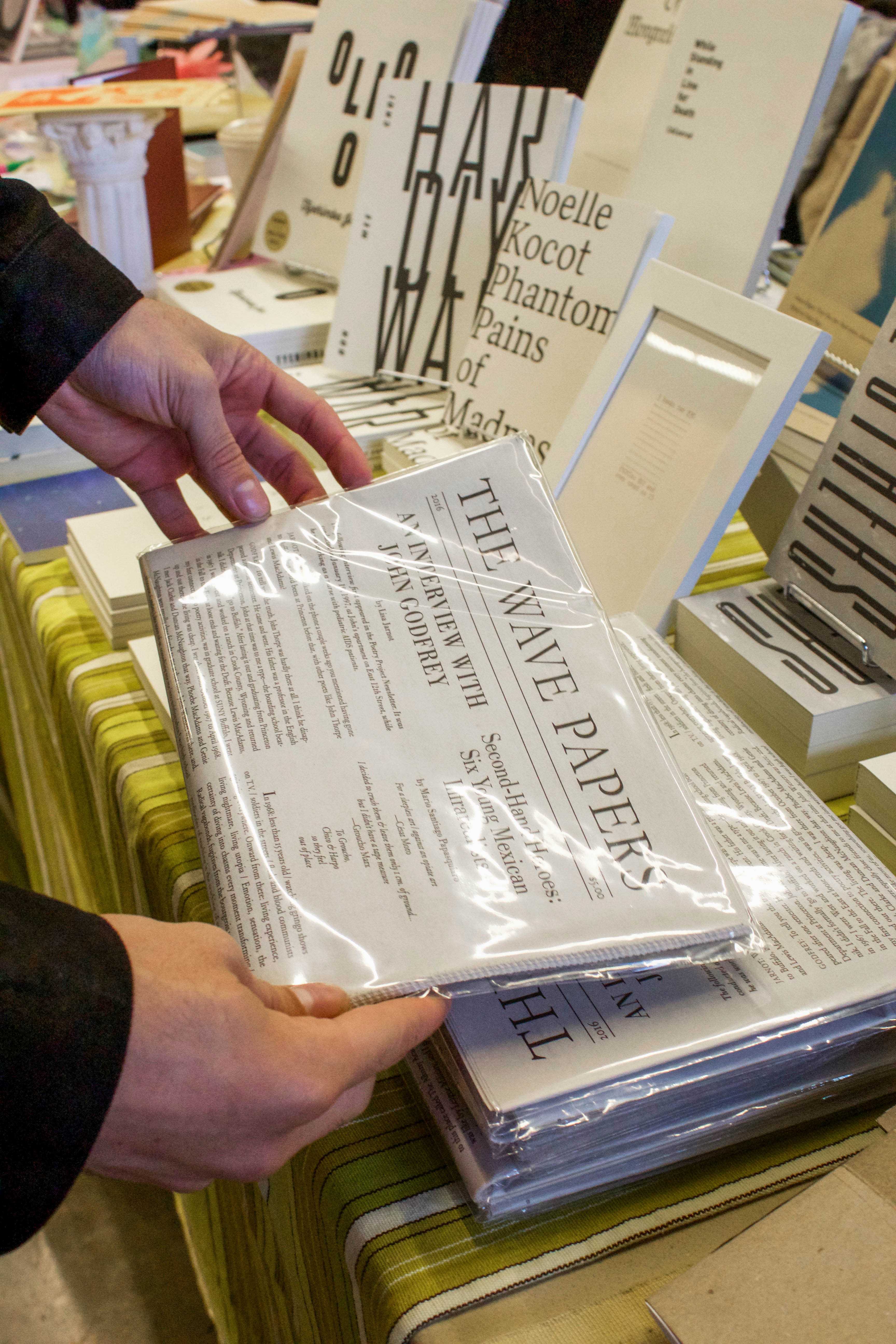Festival embraces innovation in arts

From creating poetry comics and zines to stickers, buttons, t-shirts and tote bags, the artistic community in Seattle, a newly designated City of Literature by the UNESCO Creative Cities Network, gathered Saturday to celebrate diversity in both identity and artistic expression.
The seventh annual Comix & Arts Festival featured a book expo with 280 exhibitors from all over the world at Fisher Pavilion at Seattle Center, which ran concurrently with panel discussions, workshops, drawing activities and an art show at The Vera Project.
“It’s really important for people to have a place where people can come together and appreciate this kind of work that you don’t get to see in a store, and you have just a brief window where 280 artists come to your town to show you what they’re working on,” said Eroyn Franklin, creative and development director and co-founder of Short Run Comix and Arts Festival.
Whether attendees braved Seattle’s enduring rain and winter-like temperature drop to support cherished local artists, to catch international creators or simply to people watch, they were met with a vibration of creative energy.
Adoring fans and amature artists alike occupied the nearly 14,000-square-foot exhibition space at Fisher Pavilion as well as the stage and gallery rooms at The Vera Project.
Short Run programming concluded the International Comic Arts Forum that took place on the University of Washington campus from Nov. 2-4. The forum provides a supportive, collegial environment to showcase innovative comics scholarship and comic art from around the world, and has been dedicated to promoting the scholarly study and appreciation of comic art since 1995, according to its website.
Short Run, a term used to describe a print run of relatively few copies of a given production or artwork, has come to represent the festival founded by two women artists, Eroyn Franklin and Kelly Froh, who also exhibited their artwork at the festival.

As the main curators for featured works, Franklin and Froh do an initial review of all applications that roll in over the duration of two summer months, followed further examination by a review board. Franklin says they are open with the types of works they accept, and this year, they featured works from London, Shanghai, Peru and Argentina.
“We have the best artists in the world to choose from,” Franklin said.
After four years of experience as a Short Run volunteer, Emilie Bess of Grab Back Comics stepped into the role of volunteer coordinator this year and managed about 50 volunteers. As a comic artist herself, Bess tabled with a collaborative anthology project, and finds the festival to be full of innovative and interesting works, representing a wider range of artists than other conventions.
“Short Run is run by women with the expressed intention of supporting women and minorities in print arts,” Bess said. “It’s a major priority of this festival to be not just inclusive, but to make a really welcoming and celebratory space for folks who are doing all sorts of interesting art and folks who identify in all sorts of different ways.”
In their second year at Short Run, Jazzlyn Stone and Caitlyn Edson of Make Space Zine echoed Bess, saying Short Run is unique because its staff prioritize intersectionality and openness as evident by their commitment to accessibility.
“They really make it affordable and open for artists to show their work and want to display a variety of work,” Stone said.
After a successful exhibition experience at Short Run last year, poetry comic artist Gabrielle Bates used Short Run as a deadline to create new work and complete personal projects, and she decided to book a table to sell her work again.

“I love seeing other things people are doing, I find it super inspiring and I love supporting other contemporary artists, so I will be making my own laps and spending my own money,” Bates said.
As an employee at Open Books, a poetry-only bookstore in Wallingford, Bates also values the tangible product.
“That real face-to-face interaction with a tangible, screen-printed object, there’s nothing like it,” she said. “I’m a big believer in that magical relationship between us and an object that someone else made. And also just the people watching and fashion here is an underrated reason to attend.”
In addition to creating an open environment, Short Run supports arts by offering both a residency and grant. The Trailer Blaze Residency is specifically for women comics artists and offers a place for about a dozen artists at each winter The Sou’wester Lodge and Vintage Trailer Park in Seaview, WA.
The Dash Grant supports a single artist to produce a book specifically for Short Run and includes a cash award and the backing of Fogland Studios, a screen-printing shop in Downtown Seattle.
“I meet the most incredible people through Short Run, so it’s been a really amazing experience in community-building for me,” Bess said. “In my anthology there’s 16 artists in total and I think nine of us are here in the building right now and it’s a really special thing to share that creative experience with folks. I just love seeing people do their thing.”
To see a full list of exhibitors at Short Run, visit shortrun.org.














































































